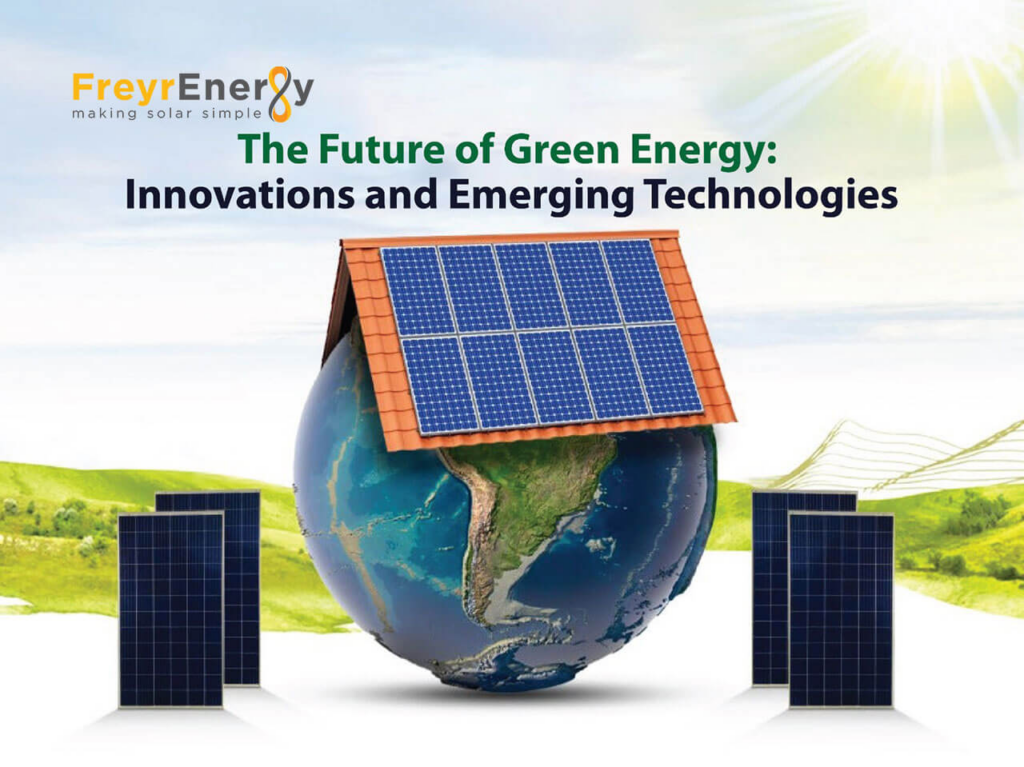
How Solar Tech Is Powering a Greener Future
- 0
As the world continues to grapple with climate change and the need for sustainable energy sources, solar technology has emerged as a powerful solution. The rapid advancements in solar technology have made it more efficient, affordable, and accessible than ever before, paving the way for a greener future.
The Rise of Solar Technology
Solar technology harnesses the power of the sun to generate electricity. Solar panels, made up of photovoltaic cells, convert sunlight into usable energy. The efficiency of solar panels has increased significantly in recent years, making them a viable alternative to traditional energy sources.
One of the key drivers of the rise of solar technology is the decreasing cost of solar panels. As manufacturing processes have become more efficient and economies of scale have kicked in, the cost of solar panels has dropped dramatically. This has made solar energy more accessible to households and businesses around the world.
The Benefits of Solar Technology
There are numerous benefits to using solar technology as a source of energy. Firstly, solar energy is clean and renewable, meaning it produces no harmful emissions and will never run out. This makes it a sustainable alternative to fossil fuels, which produce greenhouse gases that contribute to climate change.
Secondly, solar technology can help reduce electricity bills for households and businesses. By generating electricity from the sun, solar panels can offset or even eliminate the need to purchase electricity from the grid. This can result in significant cost savings over time.
Furthermore, solar technology can help reduce our reliance on fossil fuels, which are finite resources that contribute to air and water pollution. By shifting to solar energy, we can reduce our carbon footprint and help create a cleaner, healthier environment for future generations.
The Future of Solar Technology
The future of solar technology looks promising, with ongoing research and development aimed at improving efficiency and reducing costs even further. Innovations such as solar shingles, solar windows, and solar storage systems are transforming the way we think about solar energy.
Solar shingles, for example, are a type of roof covering that doubles as a solar panel. This allows homeowners to generate electricity from their roof without the need for bulky solar panels. Similarly, solar windows are a type of transparent solar panel that can be integrated into building facades to generate electricity from sunlight.
Solar storage systems, such as batteries, allow homeowners and businesses to store excess solar energy for use during cloudy days or at night. This helps to overcome one of the limitations of solar energy – its intermittent nature – and enables a more reliable and consistent energy supply.
The Role of Solar Technology in a Greener Future
Solar technology has the potential to play a significant role in shaping a greener future for our planet. By harnessing the power of the sun, we can reduce our reliance on fossil fuels, mitigate climate change, and create a more sustainable energy system for future generations.
As the cost of solar technology continues to decrease and efficiency continues to improve, more households and businesses will have the opportunity to switch to solar energy. This shift towards clean, renewable energy sources is essential in the fight against climate change and the transition to a more sustainable future.
With ongoing advancements in solar technology and a growing awareness of the need for sustainable energy solutions, it is clear that solar power will continue to play a vital role in powering a greener future.
In conclusion, solar technology is revolutionizing the way we generate and consume electricity. With its many benefits, including clean and renewable energy, cost savings, and environmental protection, solar technology is paving the way for a greener future. By embracing solar technology, we can help create a more sustainable and environmentally-friendly world for generations to come.

